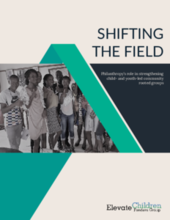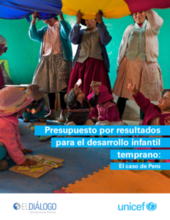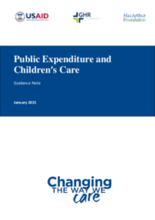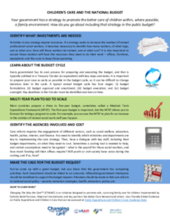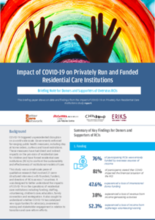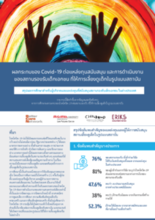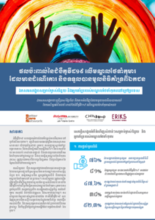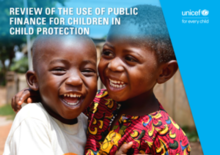Displaying 41 - 50 of 189
Este seminario web es el segundo de una serie de la Plataforma de colaboración global Transforming Children's Care. En el seminario web, Philip Goldman de Maestral International presentó una nueva guía sobre gasto público y cuidado de los niños producida por Changing the Way We Care, que está diseñada para fortalecer la capacidad de las agencias gubernamentales en países de bajos recursos para preparar un marco presupuestario sólido.
This report maps current practice in philanthropic support for child- and youth-led work at the community level and offers strategic advice to donors on how to strengthen their funding modalities to achieve greater impact.
This article provides an overview of the funding streams that finance the U.S. child welfare system, reviews the federal legislation since 1970 that has led to the current funding structure, and ends with a discussion of how the Family First Prevention Services Act of 2018 has the potential to create better outcomes for children and families by promoting prevention activities and program support with strong evidence of success.
Este informe se presenta el caso de Perú y su proceso de elaboración de políticas para la primera infancia el cual cuenta con características particulares que son de interés para la Agenda Regional para el Desarrollo Integral de la Primera Infancia.
This guidance is designed to strengthen the capacity of government agencies in low resource settings to prepare a sound budgetary framework for policies, programs and services that aim to keep children in safe and nurturing family environments.
This one-page technical brief accompanies a Guidance Note on public expenditure and children's care. It describes how to include government strategy to promote the better care of children in the public budget.
This study was a small-scale piece of qualitative research that involved 21 semistructured interviews with founders, funders, and directors of RCIs across 7 countries. It was designed to better understand the impacts of COVID-19 on the operations of residential care institutions including funding, staffing, volunteering, children’s care, education, family connection and reintegration.
การศึกษานี้เป็นงานวิจัยเชิงคุณภาพขนาดเล็กที่เกี่ยวข้องกับการสัมภาษณ์แบบกึ่งโครงสร้าง 21 ครั้งกับผู้ก่อตั้ง ผู้ให้ทุน และผู้อำนวยการ RCI ใน 7 ประเทศ ได้รับการออกแบบมาเพื่อให้เข้าใจผลกระทบของโควิด-19 ได้ดีขึ้นในการดำเนินงานของสถาบันการดูแลที่อยู่อาศัย ซึ่งรวมถึงการจัดหาเงินทุน การจัดหาบุคลากร อาสาสมัคร การดูแลเด็ก การศึกษา ความสัมพันธ์ในครอบครัว และการรวมตัวกลับคืนสู่สังคม
This study was a small-scale piece of qualitative research that involved 21 semistructured interviews with founders, funders, and directors of RCIs across 7 countries. It was designed to better understand the impacts of COVID-19 on the operations of residential care institutions including funding, staffing, volunteering, children’s care, education, family connection and reintegration.
The purpose of this review is to explore how UNICEF country offices have used Public Finance for Children (PF4C) analyses and interventions within child protection, with a view to learning lessons from their experiences.

